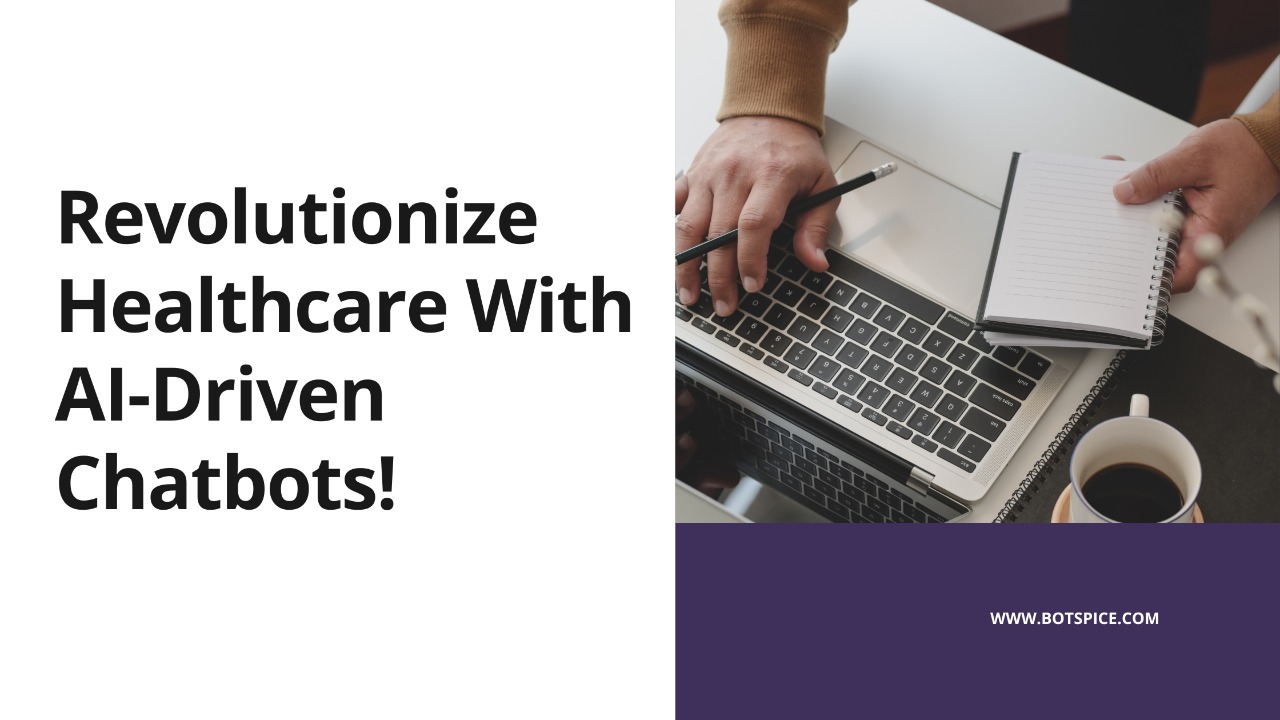Today we are on the cusp of a revolution in the healthcare industry. As Covid-19 grips the world and communities become increasingly affected, healthcare communications have been pushed to its limits. With the majority of healthcare workers dedicating their time to Covid- vulnerable patients, there is an acute shortage of medical professionals.
According to the estimates of the World Health Organization (WHO), we need over 4 million health professionals in addition to the current workforce worldwide, to be able to offer quality healthcare to the entire population.
Today, healthcare consumers are taking a more assertive role in their healthcare journey, expecting immediate high-quality, and accurate information that is smart and cost-effective.
AI-driven healthcare chatbots by ‘Botspice’ can provide digital health solutions to tackle the global health challenges we face today, providing information, care, and support at the click of a button. With a combination of NLP and machine learning technologies, chatbots can understand a patient’s intent and answer questions effectively without frequently following up. As such, they can manage the overwhelming demand for healthcare.
Table of Contents
Information through Conversations
Conversational AI tools make conversations with patients more personalized, thus increasing overall customer satisfaction and improving the quality of service provided. Healthcare chatbots can help in providing authentic and reliable information and be a patient’s guide through conversations.
Round the clock availability
The pandemic has opened our eyes to the need of the hour: To create a better healthcare ecosystem that provides ready access to healthcare information. And that could be achieved by healthcare bots that provide round-the-clock availability. Patients can get answers to queries round the clock without any downtime: discussing symptoms, accessing existing prescriptions, or even getting answers to follow-up questions, all delivered with ease.
Booking appointments
Booking appointments with doctors get easier with chatbots streamlining patient workflow, directing them based on expressed symptoms. Tasks like confirmation of appointments, rescheduling, termination can be done by bots speeding up transactional patient queries.
Resolving FAQ’s
Many of the patients have a lot of queries about Covid-19 these questions are mostly repetitive like:
● What are the symptoms?
● Is it air-borne?
● What are the vaccines available?
Many of these questions have standardized answers. The availability of answers to FAQs and guidelines about the virus can be accessible to patients via a conversational interface. They no longer have to waste time scrolling through websites only to be swarmed with information from a wide range of sources, some of which may not be reliable.
Screening on a massive scale
Healthcare chatbots can screen patients on a massive scale via analytic insights. A healthcare bot can simultaneously have conversations with thousands of people anytime, freeing up healthcare professionals to concentrate on providing first-hand access to care. No matter the magnitude of questions, healthcare bots can provide answers immediately.
Future of Conversational Healthcare Chatbots beyond the pandemic.
Conversational AI Chatbot is not expected to replace a doctor in any way. However, they can be relied upon to improve care and drive down costs across the healthcare industry.
The Global Healthcare Chatbots Market is expected to rise from its initial estimated value of USD 122.0 million in 2018 to an estimated value of USD 542.3 Million by 2026 registering a CAGR of 20.5% in the forecast period of 2019–2026.
By design, Healthcare Bot will continuously learn, adapt and improve, further optimizing the user experience with each subsequent interaction thus revolutionizing patient engagement.

